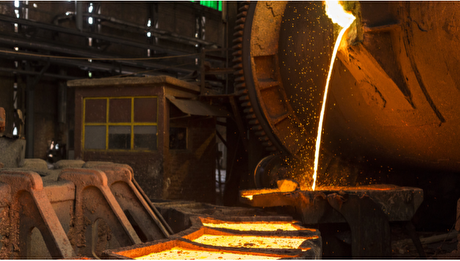
Iran’s share in Turkey’s future gas market
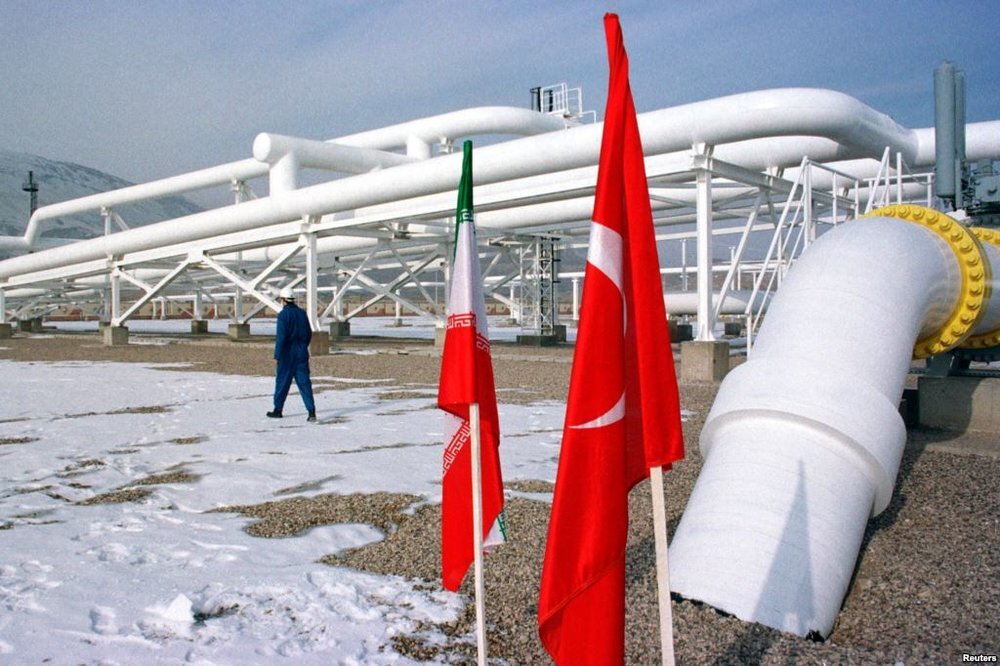
Recently, however, the news of a gas field discovery in the Black Sea as well as new developments in Turkey's energy geopolitics have caused some speculations about the future of energy cooperation between the two neighbors and some claim that Turkey is not going to be needing Iranian gas in the future.
In this regard, the Tehran Times had an interview with Mohammad Sadegh Jokar, a political economy and energy expert at the Institute for International Energy Studies (IIES) to see what the future holds for Iran and Turkey’s energy relations.
Turkey’s energy geopolitics
Having little sources of discovered hydrocarbons so far, Turkey meets most of its energy requirements from imports, and natural gas accounts for over 90 percent of the country’s energy imports.
Iran, Azerbaijan, and Russia have been the major exporters of natural gas to the country through pipeline, and in recent years Turkey has also started importing some Liquefied Natural Gas (LNG) from Algeria, Qatar, and the U.S. as well.
According to Jokar, to have a clear picture of Turkey’s energy geopolitics we should take three factors into consideration: first, the fact that the country is diversifying its energy basket by developing new renewable and nuclear power plants and also expanding the use of coal in the industrial sectors; secondly, the changes in the country’s political relations and forming new alliances have consequently led to new economic ties, and finally the discovery of a new gas field in the Black Sea which is going to change the country’s energy dynamics drastically in the coming years.
Turkey and Qatar have become strong allies in the region and under the shadow of Saudi Arabia and its allies’ threats, Qatar is counting big on Turkey for support and in return the country is providing LNG to Turkey with significantly good prices, Jokar explained.
“On the other hand, the U.S. has been taking serious measures for increasing its share in Turkey’s LNG market and under political pressures and in an effort to keep Washington on its side, Turkey has been increasing its LNG intakes from the U.S.”
Jokar further mentioned Turkey’s strategic location and the significant role which the country plays as a bridge for transporting Russian gas to Europe through Nord Stream 2 and Turk Stream pipelines, saying: “The Russians need Turkey for transmitting their gas to Europe so they are also providing Turkey with military services and armaments in addition to big discounts over their gas exports.”
Having close cultural and ideological bonds with Turkey, Azerbaijan is also benefiting from shared backgrounds for boosting its gas exports to the country.
“Shah Deniz gas pipeline project which is planned to boost Azerbaijan’s gas exports to Turkey by six billion cubic meters, is already in its final stages and will go operational by the end of the current year.”
Turkey’s gas demand
Affected by its dynamic economic developments and rapid population growth, Turkey’s energy demand has grown rapidly in the past few years and is expected to continue growing.
According to Jokar, Turkey’s demand for natural gas is going to increase by about 15 billion cubic meters in the next 10 years, however considering the current changes in the country’s energy portfolio, clearly, most of the mentioned demand increase is going to be met by sources other than the Islamic Republic of Iran.
Russia, the U.S., Azerbaijan, and Qatar all are trying to increase their share in Turkey’s energy market, while the discovery of the new gas field in the Black Sea is expected to add at least 10 billion cubic meters to the country’s gas production capacity in less than five years, he said.
Iran’s economic policy
With all the above-mentioned factors in the play, the question is “what Iran should do to keep its share in Turkey’s gas market?”
Iran and Turkey currently have a deal, based on which Turks are going to buy 10 billion cubic meters of gas from Iran annually. This contract expires in 2026, so Iran has six years to take necessary measures to ensure extending this deal or even have a better one.
“Iran’s main weapon for guarding its share in Turkey’s gas market will be economic diplomacy.”
Iran and Turkey’s senior officials have always been calling for boosting economic and trade ties. Back in 2014, the two countries’ presidents met in Tehran and agreed to boost the level of trade between the two sides up to $30 billion, Jokar explained.
Turkish exports to Iran are mainly machinery, motor vehicles, iron and steel products, electric devices, and tobacco products, while crude oil and natural gas account for the lion’s share of Iran’s exports to Turkey.
So, in line with the two countries’ determination for increasing trade exchanges and considering the fact that natural gas is the main commodity Iran exports to its neighbor, Turkey should continue purchasing Iranian gas in the future for the trade between the two sides to be balanced.
Modifying prices is yet another factor that Iranian officials should take into consideration for negotiations with the Turkish side in the current situation.
Turkey will have more options by 2026 for supplying its gas needs and so Iran needs to be willing to offer more incentives to lure the customer, according to Jokar.
The analyst finally noted that Iran is moving in a good direction toward developing domestic production and with new refineries going operational every year, the country will have its gas processed into products with more value-added and less gas would be available for exports.
Developing the LNG industry should also be a top priority for the Oil Ministry so that like its rivals Iran would have a much greater destination market range for its natural gas.


Samarco gets court approval to exit bankruptcy proceedings
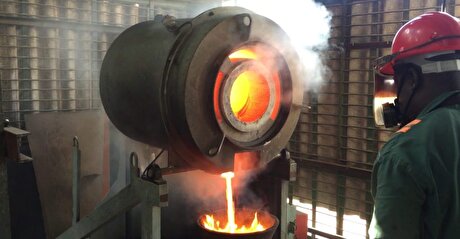
Zimbabwe labs overwhelmed as gold rally spurs exploration, miner says

Cochilco maintains copper price forecast for 2025 and 2026

Gold price stays flat following July inflation data

Mosaic to sell Brazil potash mine in $27M deal amid tariff and demand pressures

Glencore seeks $13 billion in incentives for Argentina copper projects

HSBC sees silver benefiting from gold strength, lifts forecast
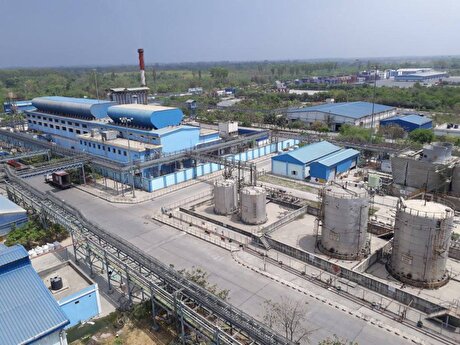
Hindustan Zinc to invest $438 million to build reprocessing plant

Samarco gets court approval to exit bankruptcy proceedings

Abcourt readies Sleeping Giant mill to pour first gold since 2014

Roshel, Swebor partner to produce ballistic-grade steel in Canada

EverMetal launches US-based critical metals recycling platform

Iron ore price dips on China blast furnace cuts, US trade restrictions

Afghanistan says China seeks its participation in Belt and Road Initiative

Gold price edges up as market awaits Fed minutes, Powell speech
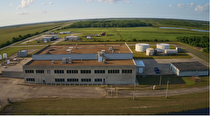
Flash Metals USA advances critical minerals recovery plant in Texas

Glencore trader who led ill-fated battery recycling push to exit

US hikes steel, aluminum tariffs on imported wind turbines, cranes, railcars
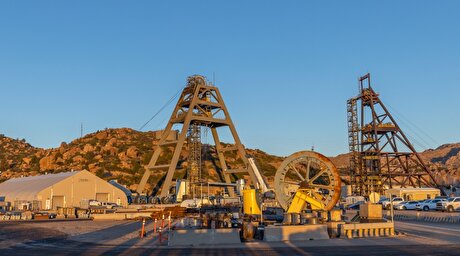
US appeals court temporarily blocks land transfer for Resolution Copper

Abcourt readies Sleeping Giant mill to pour first gold since 2014

EverMetal launches US-based critical metals recycling platform

Iron ore price dips on China blast furnace cuts, US trade restrictions

Afghanistan says China seeks its participation in Belt and Road Initiative

Gold price edges up as market awaits Fed minutes, Powell speech

Flash Metals USA advances critical minerals recovery plant in Texas

Glencore trader who led ill-fated battery recycling push to exit

US hikes steel, aluminum tariffs on imported wind turbines, cranes, railcars

US appeals court temporarily blocks land transfer for Resolution Copper















